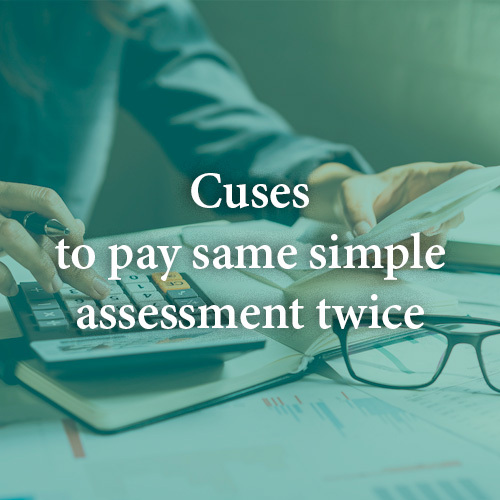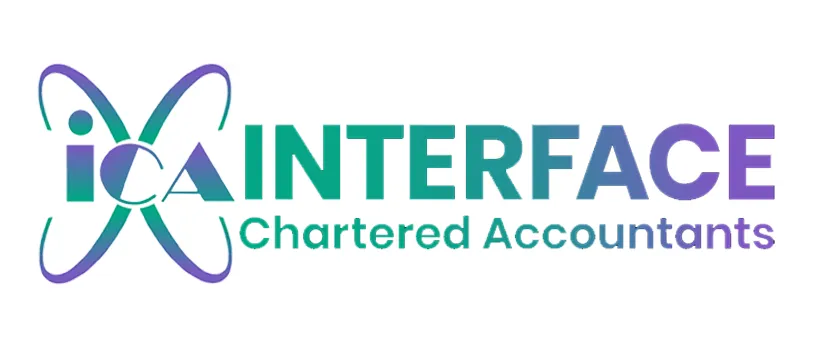Overview of simple assessment process
Simple assessment is a process that HM Revenue and Customs (HMRC) uses to assess the tax liability of taxpayers who are unable to complete a self-assessment tax return. It is a simpler way for HMRC to collect taxes from those who have simple tax affairs.

Problem statement:
Taxpayers being asked to pay same simple assessment twice Recently, there have been instances where taxpayers have been asked to pay the same simple assessment twice. This issue has caused frustration among taxpayers who have already paid their tax bill and received confirmation from HMRC.
Importance of issue
This issue has serious consequences for taxpayers and can erode trust in the UK tax system. It is important to identify the causes of this problem and find solutions to prevent it from happening again in the future.
Background
Explanation of simple assessment Simple assessment is a process that HMRC uses to assess the tax liability of taxpayers who have simple tax affairs. It is intended to simplify the tax collection process for those who cannot complete a self-assessment tax return.
Overview of previous issues with simple assessment
Simple assessment has had its fair share of issues in the past, including inaccurate calculations, incorrect data, and delayed processing times. These issues have caused frustration among taxpayers and highlighted the need for improvements in the system.
The current problem of taxpayers being asked to pay twice
The current problem with simple assessment is that taxpayers have been asked to pay their tax bill twice, even after they have already paid and received confirmation from HMRC. This has caused confusion and financial burden on taxpayers who have already fulfilled their tax obligations.
Causes
Inaccurate data One of the causes of this problem could be inaccurate data used by HMRC in the simple assessment process. If HMRC does not have correct data on file, it can lead to incorrect tax calculations and confusion for taxpayers.

Technical errors in the simple assessment system Another cause of the issue could be technical errors in the simple assessment system. If there are bugs or glitches in the system, it can cause errors in tax calculations and result in taxpayers being asked to pay twice.
Lack of communication between HMRC departments A lack of communication between HMRC departments could also contribute to this problem. If different departments within HMRC are not communicating effectively, it can lead to confusion and errors in the simple assessment process.
Consequences
Financial burden on taxpayers
The consequences of this problem are significant for taxpayers. Being asked to pay the same tax bill twice can be a financial burden, especially for those on lower incomes or fixed budgets.
Negative impact on trust in HMRC
This issue can also have a negative impact on the trust that taxpayers have in HMRC. If taxpayers feel that HMRC cannot accurately process their tax payments, it can erode their trust in the UK tax system as a whole.

Possible legal consequences for HMRC
If this issue is not resolved, it could have legal consequences for HMRC. Taxpayers who are asked to pay the same tax bill twice could take legal action against HMRC, which could result in additional costs and damage to the reputation of the UK tax system.
Solutions
Improved data accuracy and communication between departments
To address this problem, HMRC must improve the accuracy of data used in the simple assessment process and ensure effective communication between different departments.
Enhancing the simple assessment system
HMRC should also consider enhancing the simple assessment system to address technical errors and improve the overall efficiency of the process.
Streamlining the appeals process
Finally, HMRC should streamline the appeals process for taxpayers who have been asked to pay their simple assessment tax bill twice. This would ensure that taxpayers can easily and efficiently appeal the decision and have their case reviewed.
A streamlined appeals process would also reduce the burden on taxpayers who have to go through a lengthy and complicated process to resolve the issue. HMRC could provide clear guidance on how to appeal and ensure that appeals are processed in a timely manner.
By doing so, taxpayers would feel more confident in the tax system and trust that HMRC is working to resolve their issues in a fair and efficient manner. A streamlined appeals process would also help to reduce the risk of legal action being taken against HMRC, which would have a positive impact on the reputation of the UK tax system.
 Skip to content
Skip to content

